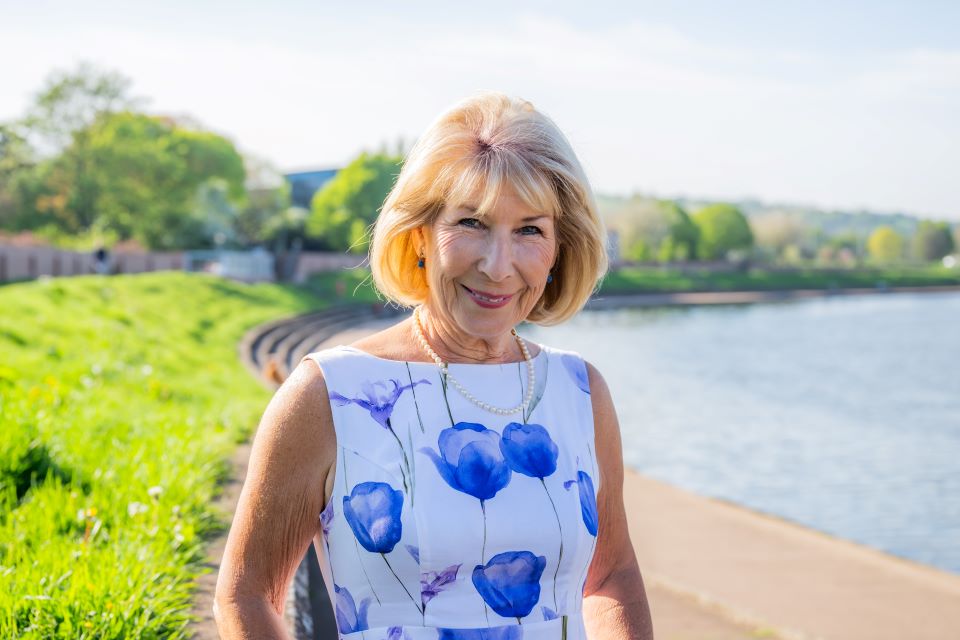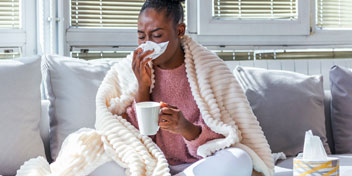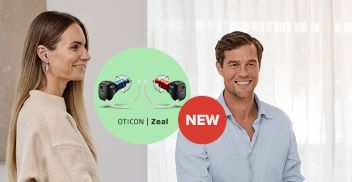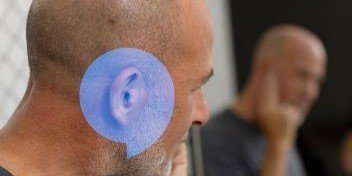Journalist and Royal reporter Jennie Bond finally “took the plunge” and was fitted with state-of-the-art hearing aids. Read about why her hearing test results surprised her, and find out what proved to be the “clinching factor” behind her decision to invest in hearing aids.
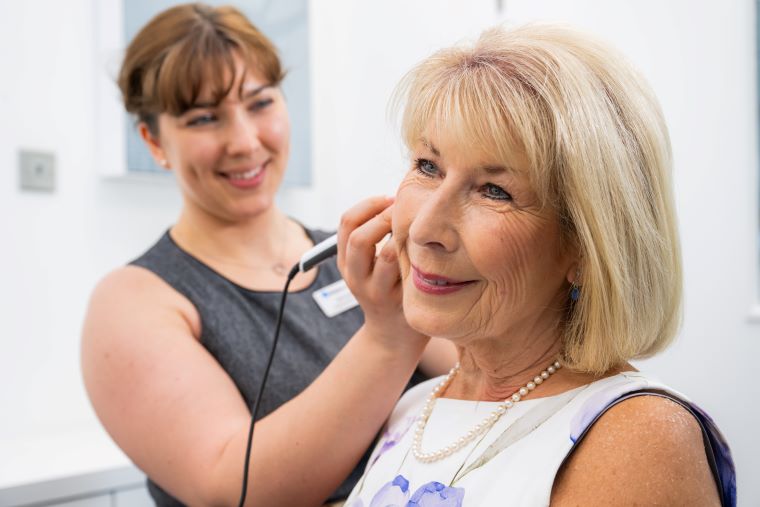
Rosie smiled reassuringly as she directed me to the small sound booth to test my hearing. I smiled back thinking: “Huh! I’ll show you. Hearing aids? Me? No way do I need those!”
I’d only really gone to Hidden Hearing to keep my husband company. Now, he unquestionably does need help, and Hidden Hearing have been looking after him brilliantly for several years. Rosie handed me the little clicker to press each time I heard a sound. I felt smug as she closed the door. For the next few minutes, I clicked merrily away at all the bleeps she sent to my ears. Or, at least, I thought I’d clicked on them all.
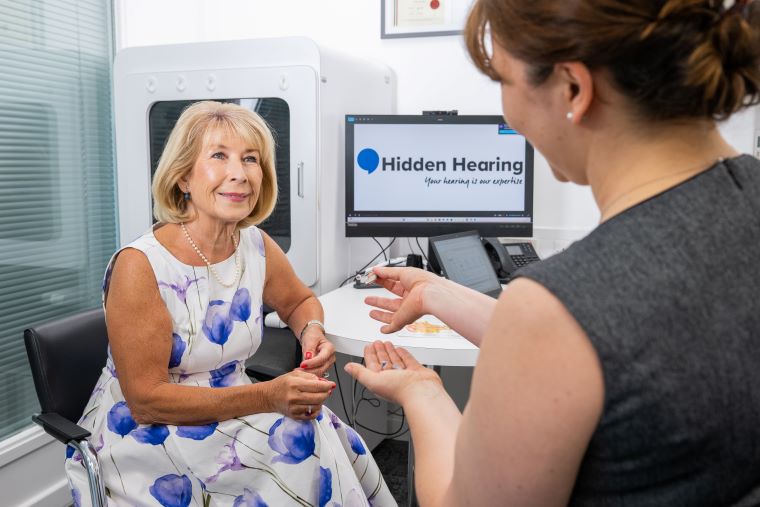
“All done,” said Rosie, who is an experienced and highly professional audiologist. She had already persuaded my once reluctant husband to wear his hearing aids every day — not just when he fancied it — because his brain would become acclimatised to them. It worked — and life for both of us became much less stressful, as I was able to stop shouting and he was no longer in danger of being isolated in conversations.
She showed me a graph on a screen. My results were in.
“Well done!”, I expected her to say. “100%!”
The truth was far from the perfect score I had anticipated. My hearing had taken a bit of a nose dive since my last test. The results showed that I had, in fact, failed to hear quite a number of bleeps and that I was finding it hard to decipher the difference between sounds like “f” and “s”.
It was, Rosie declared, time for hearing aids.
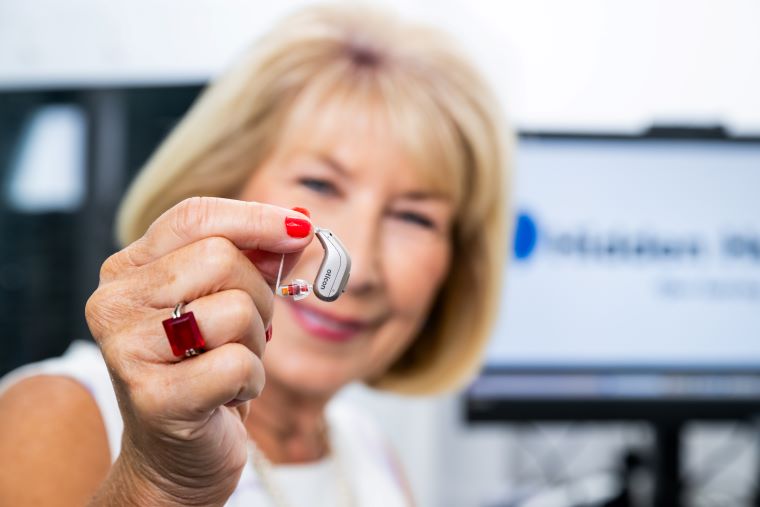
Quite why so many of us find it hard to concede that our ears need a bit of help as we grow older, I really don’t know. I guess it’s all bound up with the idea of accepting our age and our physical weaknesses. And yet most of us don’t mind wearing glasses or even using a walking stick if it helps. And with modern hearing aids, you don’t even have to acknowledge that you’re wearing them.
And so, I became a reluctant convert. The clinching factor for me was the suggestion that hearing loss can be associated with the onset of dementia.
Having helped nurse my late mother through ten years of this most dreadful of conditions, I will do anything to avoid following in her footsteps.
Rosie fitted me with a pair of state-of-the-art hearing aids which are, indeed, hidden. The house is far quieter as my husband and I talk at normal volume. The TV sound has been switched down several notches. My hearing is now so acute that I prefer to turn them off when my adorable but very loud toddler grandchildren come over!
And the hearing aids are connected to Bluetooth®, so I can control them on the phone or, indeed, listen to the radio on them. And I particularly like the choice of modes: general, comfort or music. Depending on your surroundings, you can change the setting to suit the circumstances. It’s all terribly clever!
I watched my mother become more and more isolated as her hearing failed and her brain deteriorated. By then, she was so confused it was impossible for her to understand what hearing aids were… or to tolerate them. We had left it too late.
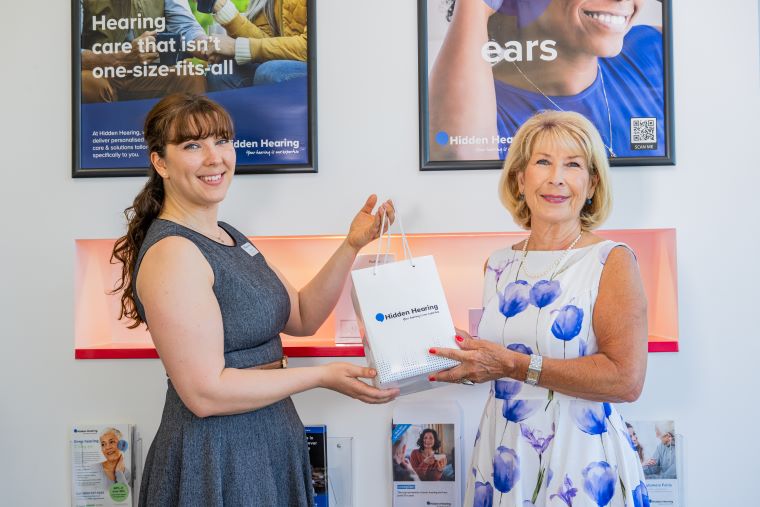
So, thanks to Rosie and Hidden Hearing, I have taken the plunge. I am now wearing my hearing aids every day, and hardly notice that I have them in. My brain can concentrate on the work I’m doing or the conversations I’m having without struggling to decipher each sound.
I shall be 75 this year and am learning to accept some of the inevitabilities of age. Don’t get me started on wrinkles! But, with more of my brain intact, I can hopefully continue to grow old disgracefully!
Remember, 50% of over 55s have some degree of hearing loss.1 So, like Jennie, you might think that your hearing’s fine, but if you’re over 55, it’s worth getting it checked. You can book your free hearing test today – just follow the link.

